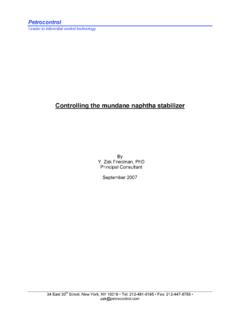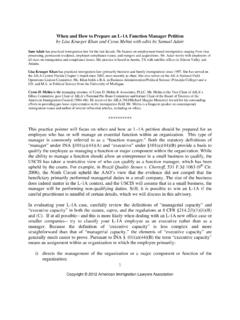Transcription of Meditation Troubleshooting Guide 02 - Positive psychology
1 3 MINDFULNESS Meditation Troubleshooting GUIDEn FOREWORDDo you ever find yourself telling others about the amazing benefits of Meditation while you secretly struggle to practice it yourself? Do you find yourself pitching mindfulness Meditation while you can t even seem to sit down with your eyes closed for 10 minutes? Weird, right?It seems so hard for us to really ingrain mindfulness Meditation in our lives. To practice as we preach. Well, good are numerous reasons for this and ways of getting ourselves out of this predicament that we will be sharing with you in this Troubleshooting Guide that you re people have asked me: Isn t it counterproductive to give people advice on their Meditation practice? They might get even more lost in their thoughts by wanting to do it right and feel even worse when they fail at it.
2 There a sense in which this is true. But there s also a sense in which Meditation is a skill and that, like with any other skill, one needs instructions and feedback to get better at it. There are also some common hurdles that you might experience when you re starting out or when you haven t practiced it in a while.(Those who practice Transcendental Meditation for instance know how important it is to master the technique of Meditation with the help of a personal instructor before you go out and practice it on your own.)This Guide will help you in overcoming those hurdles and in making your mindfulness Meditation practice frustration-free, it will also help you in helping other people with their you are a practitioner and you re serious about helping your clients, students or colleagues with mindfulness and Meditation , there s an offer we would like to make you at the end of this let s first take a deep dive Meditation Troubleshooting GUIDEn BACKGROUNDEven though clients can be convinced that Meditation has important benefits, integrating Meditation in their daily life is often a challenging task.
3 Meditation can be boring or frustrating. It can cause physical discomfort, and it may be difficult to fit in a busy schedule. This Guide was designed to tackle the most common challenges in cultivating a Meditation practice. This Guide addresses the problems with boredom, restlessness, sleepiness, breath control, low levels of enthusiasm, distractions, unusual experiences, tension, impatience, physical discomfort, and unhelpful thoughts. u BOREDOMM editation is often perceived as daunting, as a mundane task that is a waste of time. Our fast-paced society where numerous stimuli draw our attention influences this false perception. Phone alerts, overwhelming inboxes, and television advertisements take us away from embracing the here and now. The more we are conditioned to respond instantly to all the distractions in our lives, the more easily bored we become when deprived of these stimuli.
4 When the sense of boredom arises, the meditator is not fully mindful and in the moment. Boredom causes the mind to wander. A wandering mind commonly focuses on the past or future. It is important to bring attention to the fact that we are breathing. Whenever during Meditation the mind slips into boredom or starts wandering, we have the opportunity to gently practice the following techniques to help bring our attention back to the moment: 1. Acknowledge the Feeling When the feeling of boredom arises, accept that it has occurred and let it be. 2. Awareness of Thoughts Become aware of the thoughts that relate to boredom, which include: What s the point of doing this? When is it over? I can t be bothered. This is a waste of time. 3. Become Interested in the Sensation Allow the curiosity of where the boredom came from, where it is going, where it is felt in the body, and how it is guiding behavior ( , the urge to fall asleep).
5 4. Focus on the Breath Notice the breath and observe the change in boredom. 5 MINDFULNESS Meditation Troubleshooting GUIDE5. Take a Step Back There is a difference between being bored as compared to simply observing it. Take this third-party perspective and observe the boredom within you as if it were separate from the self. u RESTLESSNESSW hile similar to boredom, restlessness is different in that it is associated with high energy levels and a common mental state. Day to day activities cause the mind to race. Meditation helps us diffuse this excessive energy. Try the following two tips to address restlessness: Begin with Mindful Movement To calm the mind for a seated or lying down Meditation , begin with movement of some kind ( , mindful walking or mindful yoga). Observe without Reaction Observe the feeling without reaction. Notice what the mind wants, but continue to sit.
6 This practice disciplines the mind. You are in control of your mind, not the other way around. u SLEEPINESSB ecoming fatigued during Meditation is a normal occurrence. The urge to sleep is a clever way for the mind to avoid practicing. Meditation is meant to heighten awareness while sleep allows awareness to rest at a low level of consciousness. Normal daily consciousness is somewhere between sleep and Meditation . Below are some tips that help the mind stay awake during Meditation : Get Enough Sleep Getting enough sleep will prevent increased drowsiness during Meditation . Have a Small Snack, Not a Meal If hunger arises pre- Meditation , have a small snack instead of a full meal Intermittent Standing Postures Include small breaks from sitting or lying down by practicing mindful stretching, mindful yoga, mindful tai chi, or mindful walking.
7 Time of Day Experiment with meditating at various times of the day. Some people are more alert in the mornings while other people are more alert in the evenings. Experiment to find the time that is right. Eyes Open Opening the eyes during Meditation can help ground us and stay alert, but adopt a mindful-gaze. Look through the eyes with a relaxed gaze to avoid 6 MINDFULNESS Meditation Troubleshooting Guide being distracted by the surroundings. Recognize the Feeling The act of noticing drowsiness can help the mind refocus. Adopt the observing state of mind. u CONTROLLING THE BREATH In some cases, focusing on the breath can cause the breathing to become uncomfortable. In its mildest forms, one might feel a sense of stiffness or awkwardness about the breathing, but in more extreme cases, hyperventilation and/or dizziness may occur.
8 This is often caused by an attempt to control the automatic process of breathing. Rather than trying to control the breath, mindfulness Meditation is about observing the breath without attempting to change it. You can deal with this problem in three ways: 1. You may try to focus a bit more on the exhale rather than inhale. Notice the brief pause that takes place directly after the exhale. Instead of breathing in again, breathe in when your body feels ready for the breath. Breathe as shallowly or deeply as your body seems to need. Notice how the breath returns to your body again. When pausing after each inhale, the air goes out again automatically. 2. Try to inhale through your nose and exhale through your mouth. Repeat five to ten times. This can ease breathing, as the automatic process of breathing takes over again.
9 3. In some cases, trying to control the breath results from the belief that one must perform the Meditation in the right way. Expectancies, like becoming relaxed or clearing the mind , can cause a form of rigid concentration that is in sharp contrast to the open and kind awareness that Meditation aims to cultivate. If this is the case, try to lighten up by being playful in Meditation . 4. Remember that Meditation is not about achieving particular results. It is about being in the present moment with a kind and open attitude. u LOW LEVELS OF ENTHUSIAMLike any routine, the act of performing the same Meditation every day or every week becomes mundane. Making a habit of practicing Meditation is very helpful, but becomes less effective if done so in a mechanical way. If there is a lack of purpose to the Meditation , or if there is a pattern of falling asleep, then recharging enthusiasm can be helpful.
10 Use the following ideas to recharge your enthusiasm: Mix it Up Choose a different Meditation practice for each time you meditate. 7 MINDFULNESS Meditation Troubleshooting Guide Find Companions Join a Meditation group. Spice it Up Attend a retreat, course, or workshop. Embody your Practice Use different Meditation postures- standing, walking, sitting, lying down. Step out of the Ordinary Change the time of the day that you meditate. Dive in and Submerge Yourself Have a full day of mindfulness. Treat yourself to a full day of practice, from the time your eyes open to the time that they close at night. Let the day unfold as it will, without the need to control it or have a set agenda. This can be a refreshing way to spend a day of relaxation and attend to what you feel like doing in the moment. Get Educated Contact a mindfulness Meditation teacher for advice.




